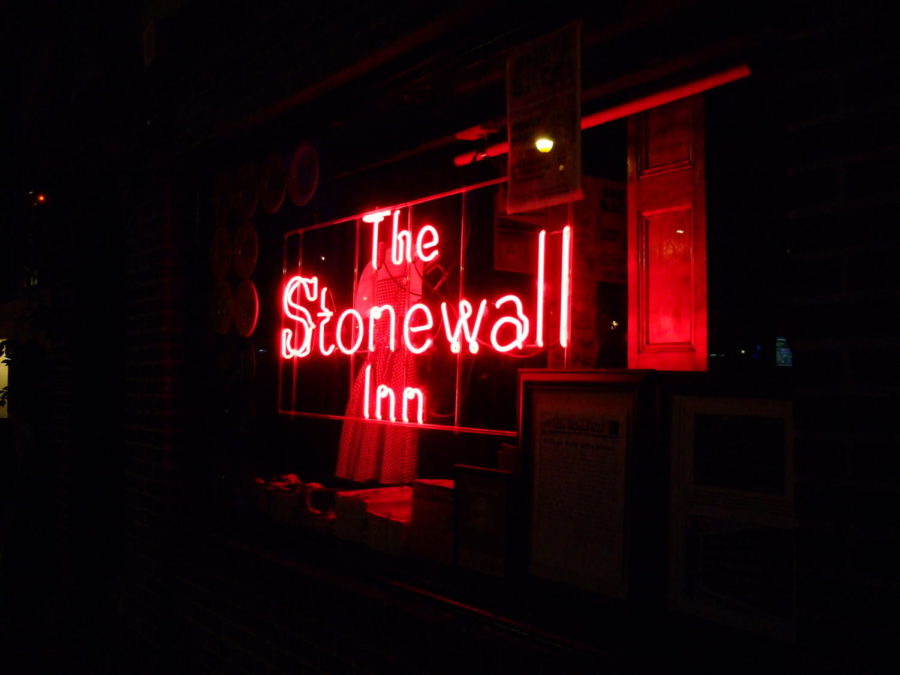Poyer: Let’s talk the Stonewall Riots
June 11, 2021
Discrimination has been a longstanding tradition for the LGBTQIA+ community. Unfortunately, the community is no stranger to being mistreated in their everyday lives simply because of who they are and others’ unwillingness to accept them.
The 1960s in New York City proved to be no exception. Some heavy legislation made it very hard for LGBTQIA+ individuals to be themselves in bars and clubs. In 1967, the Stonewall Inn was opened in Greenwich Village in Manhattan. The inn opened as a gay club, which was a pretty controversial move considering the homophobic nature of society. Because the inn served gay patrons, being raided by the police was, sadly, not uncommon. Luckily for the Stonewall Inn, corrupt cops were able to be bribed into giving tips before raids. Unfortunately, a tip was not given the night the Stonewall Riots started.
June 28 was the day the luck changed for the Stonewall Inn. Police entered the club that day, armed with a warrant, and started being rough with patrons and employees. Police harassment had never been a stranger to the inn, so bystanders remained outside the club. They were agitated with what was taking place at the Stonewall Inn. As an officer was forcefully loading a lesbian patron into a police van, he hit her over the head. This was the point at which she shouted at the bystanders — thereby inciting people into throwing objects at the police officers. Protests and the riot continued for five more days, thus giving us the legacy of the Stonewall Riots.
The Stonewall Riots are often marked as a catalyst for the LGBTQIA+ movement in America. Without the Stonewall Riots, I, and many others, feel as though LGBTQIA+ people would have a very different life in America today. The riots proved to be a huge contributor to gay rights.
Many organizations developed after the riots, such as the Gay Liberation Front, GLAAD (formerly known as the Gay and Lesbian Alliance Against Defamation) and PFLAG (known until 2014 as Parents, Friends and Families of Lesbians and Gays). These organizations help to push for gay rights and make changes in the world for the LGBTQIA+ community. Now, with that being said, the riots obviously did not clear everything up for the community.
Today, discrimination still happens. Hate crimes are still committed against members of the community, as well as other forms of discrimination. Luckily, the LGBTQIA+ community and their allies prove to be very strong and determined. The march toward equality and justice continues to this day.
The Stonewall Riots left behind a legacy. The people who rioted for the equality and fairness of the LGBTQIA+ people being unjustly treated by police in New York City in 1969 propelled forward a fantastic movement — a movement not started by them but launched forward. President Barack Obama designated the sites of the riots (Stonewall Inn, Christopher Park and the streets and sidewalks surrounding the locations) as a national monument to mark the contributions of the area to gay rights. I think the designation is quite beautiful and honors just how vital the riots were.
As we continue through Pride Month, let’s talk about members of the LGBTQIA+ community who have made changes globally and contributed to a constant and significant fight. Recognizing these contributions and their lives is so crucial as they can sometimes be erased from history. Let us not forget to remember everyone involved in important events, such as the Stonewall Riots.







